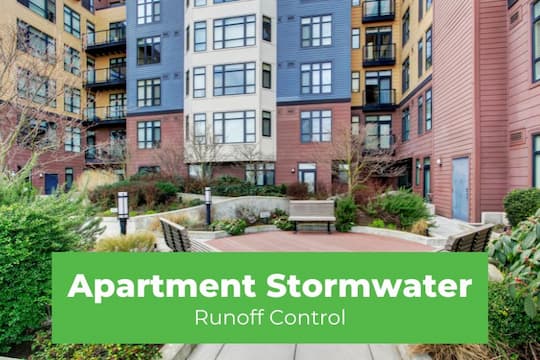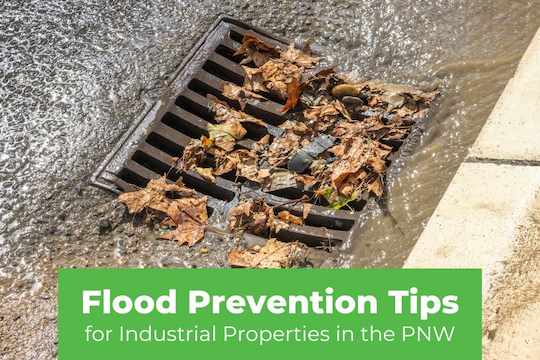Creating a financial budget may sound tedious, but this annual process helps HOAs by providing a roadmap to set and achieve their financial goals. The budgeting process gets the organization to hone in on financial priorities, gain more insight and control on spending, and plan for one-off or surprise financial expenditures.
Working through budget discussions helps budget team members plan the funding for future, planned projects and include a financial cushion the organization may need to cover the unexpected.
Without a budget, expenses often grow without any oversight, and revenue from dues collections may fall way behind because of delinquent payments. This double whammy can catch an HOA off guard, especially when an urgent maintenance situation comes up such as unplanned storm drain cleaning due to a clogged storm drain or flooding after a storm. These financial surprises can eat into existing cash, making it tough to even cover the HOA's regular monthly operational costs.
HOAs can improve the usefulness of budgets by following some best practices, which follow below.
Start with a Higher-Level Plan

In keeping with HOA budget best practices, it is useful to develop a financial plan that covers one, three, and five-year time horizons. This gives an opportunity to plan for larger projects, especially larger, more costly ones that do not fit into the current year’s budget.
A major driver of every decision put into the budget should be the enhancement of the residents’ lifestyle and of the community. Keep personal opinions or interests, and any other factors that might include bias, out of the HOA’s budget decisions.
Manage Incoming Revenue
Every HOA needs to deal with the unfortunate reality of delinquent dues payments. If your HOA has historically shown some late payments or non-payments, add a line into the budget for bad debt. Your budget will more closely reflect reality by including this line item and highlight the need to find additional ways to fund ongoing operating expenses.
A large number of unpaid resident dues can put the HOA in jeopardy of not having enough cash to cover monthly maintenance costs. As a practical matter, managing the receivables needs to become an ongoing process.
Implement a collections process and late payment policy. Make a consistent practice of charging late fees to cut down on the number of late dues.
Conduct an Ongoing Review of Expenses

Even though HOAs are nonprofit entities, the more efficiently you manage existing expenses, the more this frees up funds for ongoing maintenance, a buffer fund to cover an additional month of operating expenses, special projects, and other uses that benefit the residents and their community.
When creating the expense portion of the budget, it is tempting to expedite the budgeting process by taking an average of last year’s expenses or annualizing the most recent month’s costs. This method does not give the best results, however, because none of the expenses have gone through any type of review.
HOA budget best practices include periodic review and monitoring of each expense item on the HOA’s budgeted income statement. Going through this process will give you great insight into each expense and possible ways to reduce, or at least maintain existing expense levels.
As you review each vendor, evaluate their performance over the past year, and any fee increases that may show up in the coming year. If the situation warrants, shop around for new vendors or approach existing vendors to renegotiate better pricing and other terms of service.
Keep Tabs On the Operating Fund
The operating fund for your HOA needs to have a minimum balance that covers at least one month's maintenance costs to prevent coming up short. This best practice goes hand in hand with expense review because lower expenses help free up more income to cover monthly operating costs. You want to reserve special assessments for times when they make sense, not as a last-ditch way to cover ongoing monthly expenses.
Although you might want to include a line in the budget for general contingencies, this category makes it too easy to throw a bunch of random expenses in one bucket without enough control or oversight. Instead of contingencies, try to put budgeted costs in more appropriate, specific line items in the budget.
For example, if your HOA's stormwater management system develops a problem that falls outside of ordinary maintenance costs, allow for this by increasing the budget for the repairs and maintenance budget line item. The CatchAll Environmental team can provide you with estimates for emergency storm drain clearing and other related work to help you flesh out that part of the HOA’s budget.
If you are going into the new year with a funding shortfall, you may need to accept the unappealing solution of a special assessment. Plan the timing and build this into the budget for the coming months.
Operate By the Book

Become familiar with your state's laws and the HOA's governing documents regarding the appropriate accounting before finalizing your budget. Having this knowledge up-front helps you build HOA budget best practices into the budget from the start, rather than having to re-do your work later as you find out new information. Building your budget the right way can also reinforce proper operations to comply with the required legalities, rules, and regulations.
This issue does not apply directly to the budget, but best practices also dictate the separation of duties in accounting. Since several people could be involved in the process of collecting dues and cutting checks to pay expenses, implement and monitor the proper internal controls to keep duties separated so that no one person has the chance to waste or misappropriate funds.
Get Help With Your Maintenance Budget
Building a detailed, yearly budget can become a positive exercise and guiding force for keeping tabs on incoming dues and necessary expenditures.
Contact CatchAll Environmental and ask how we can help you reduce costs for ongoing maintenance. We can also inspect your system for signs of wear and tear or potential repair work that needs to be included in your budget. We have a dedicated staff that can also fill out regulatory paperwork and even communicate with municipalities on your behalf.













